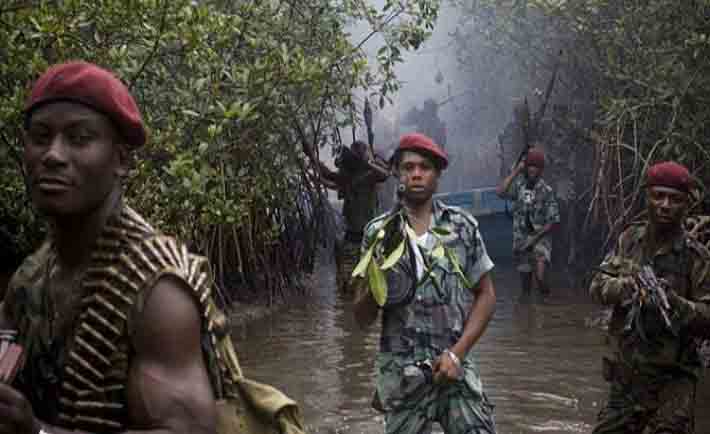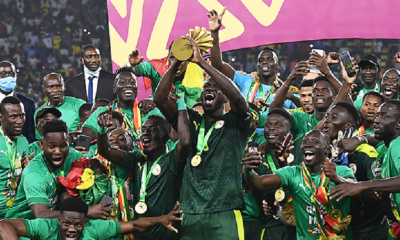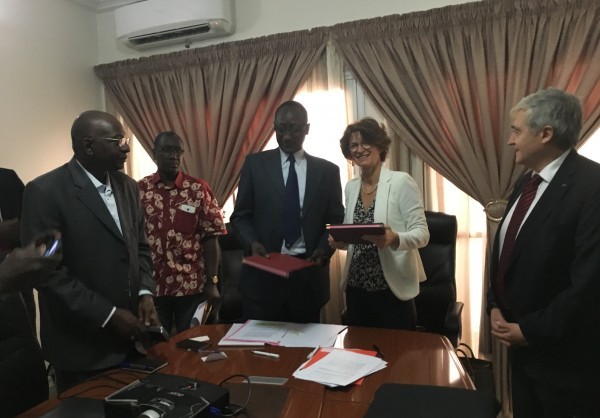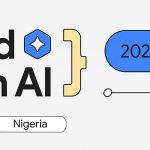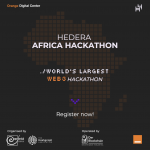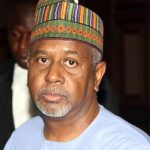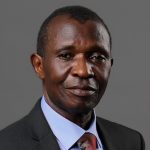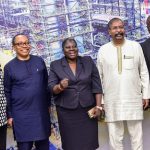World
Senegal Seeks to Learn From Mistakes of Other African Countries and Reverse ‘Resource Curse’
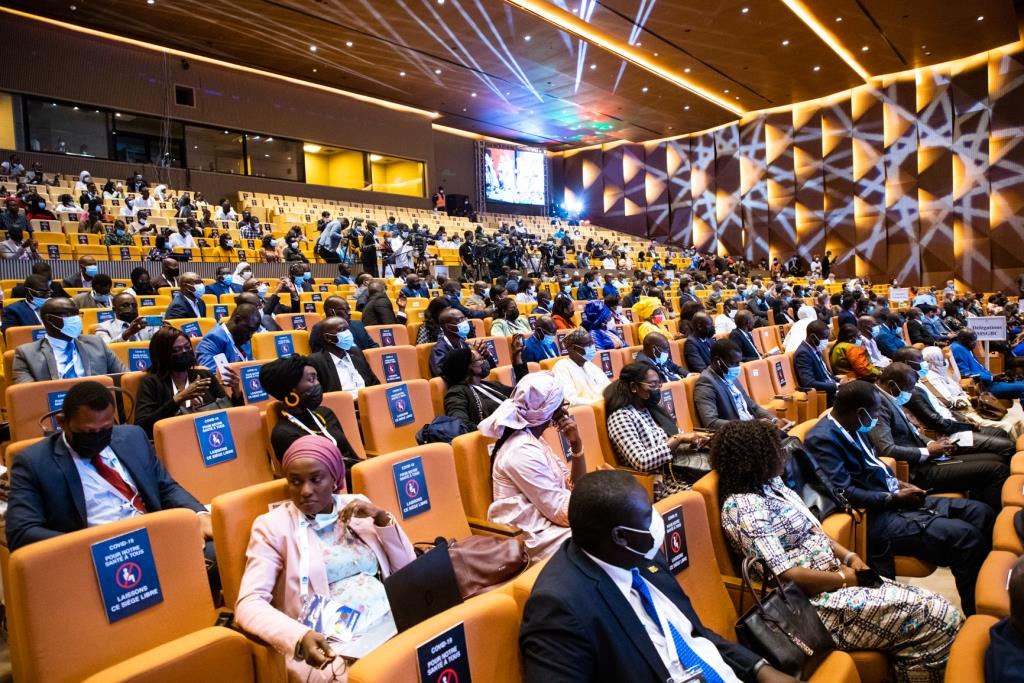
By Kester Kenn Klomegah
Senegal has held a well-representative meeting to seek dialogue with a cross-section of civil society leaders, experts from different economic sectors and both public and private business leaders for the management of revenues from the country’s oil and gas, hydrocarbons and energy resources in the country.
Senegal, located on the West African coast, has a population of approximately 15.9 million. While the economy is mostly driven by mining, construction, tourism, fishing and agriculture, it has state revenues from the exploitation of some natural resources. These revenues largely constitute the national budget.
With the utmost ambition and desire for all Senegalese people to benefit and prosper from their country’s natural resources, President Macky Sall demonstrated his determination to implement reforms to exploit Senegal’s hydrocarbon potential. The move is to propose a framework that will mandate accountability and transparency in the management of resources to ensure that oil and gas production will be conducive and significant towards the well-being of the entire nation.
Senegal is looking towards learning from the mistakes of other African countries in an attempt to reverse the so-called “resource curse” that plagues many oil and gas producing African countries. In a further demonstration of enlisting public opinion, such a broad meeting was called to brainstorm for ideas and incorporate them into a national development programme.
“It is extremely important to remind you all today, we remain convinced that the promotion of a participatory, multi-institutional, and collaborative approach is imperative for capable governance and guaranteeing sustainable prosperity,” stated President Macky Sall of the Republic of Senegal.
Under this new legislation, the citizens of Senegal will have a seat at the table, with civil society to play a leading role in driving the discussion surrounding the monetization of the country’s oil and gas industry. This landmark act will ensure a trickle-down economy that guarantees investments within petrochemicals, agriculture, power, gas, and transportation, thus expanding the economy and facilitating the creation of many jobs for Senegalese citizens.
While the undeniable impacts of climate change continue to be taken into consideration, Senegal is driven towards eradicating energy poverty, and notes that the development of the nation should be prioritized, and this will be done through oil and gas.
Poised to catalyze Senegal’s economy, oil and gas exploration and production are at the forefront of providing efficient, low-cost energy solutions in accordance with the primary objectives of the Plan for an Emerging Senegal. Thus, with the country’s first oil production geared for 2023, President Macky Sall has put into place, the requisite systems necessary to strengthen the revenue from the exploration and production of hydrocarbons for the benefit of Senegalese civil society.
The Senegalese Presidential Council is, however, praised for the distribution and supervision of the management of revenues derived from the exploitation of hydrocarbons. It marks a significant step towards the leader’s desire for oil and gas to be conducive to the well-being of all Senegalese people. It further shows efforts to involve civil society in significant issues relating to the socio-economic growth.
Abdoulaye Wade’s decision to run for a third presidential term sparked a public backlash that led to his defeat to current President Macky Sall. His election was primarily due to support from broad-minded democratic groups. The 2016 constitutional referendum limited future presidents to two consecutive five-year terms. In February 2019, Macky Sall won his bid for re-election; his second term will end in 2024.
Reports show Senegal is committed to harnessing its oil and gas resources to drive socio-economic growth, and support a national development model – the Emerging Senegal Plan. Senegal is working collaboratively with external and regional partners to position itself as a globally competitive hydrocarbon producer. In 2021, the country saw several significant achievements regarding its top two energy projects, according to reports provided at last African Energy Week (AEW) held in Cape Town, South Africa.
As one of Africa’s leading natural gas markets, boasting over 450 billion cubic meters of reserves, Senegal is aggressively pursuing industry expansion with the aim of establishing the country as a regional gas producer and exporter.
Senegal’s National Oil Company (NOC), for instance, has been advancing the industry. With a participating interest in all upstream commercial hydrocarbon activities, the company has accelerated oil and gas exploration and production, effectively positioning Senegal as a regional gas hub and global competitor.
The company has effectively navigated the global pandemic, enhancing industry activities and introducing key investment opportunities to international stakeholders and driving a strong discussion on the role of Senegal in Africa’s energy future.
Its largest project, the Greater Tortue Ahmeyim (GTA) Liquified Natural Gas (LNG) project, is the deepest offshore project on the continent and is set to unlock approximately 15 trillion cubic feet of gas. Jointly developed by BP, Kosmos Energy, Societe des Petroles du Senegal (Petrosen), and Societe Mauritanienne des Hydrocarbures (SMHPM), with BP as the operator, the project has set a high standard for other African gas markets looking to enhance development.
Senegal enjoys mostly cordial relations with its neighbours – Guinea, Guinea-Bissau, Mauritania, Mali and The Gambia. It is a member of the Community of Sahel-Saharan States and also belongs to the 16-member regional bloc, the Economic Community of West Africa States (ECOWAS).
World
Trump Slams 15% Tariff on Nigeria
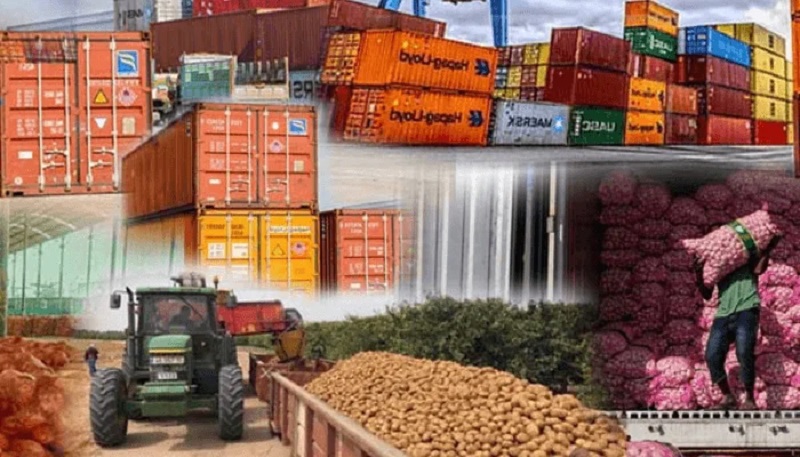
By Adedapo Adesanya
Nigeria will bear a 15 per cent tariff as President Donald Trump looks to enforce tariffs on countries trading with the United States.
President Trump has set a baseline tariff of 10 per cent on all imports to the United States, as well as additional duties on certain products or countries.
The American President says tariffs will encourage US consumers to buy more American-made goods, increase the amount of tax raised and boost investment.
So, Nigerian companies that bring goods into the US have to pay the tax to the government.
However, they may pass some or all of the extra cost on to customers.
Countries and Tariffs
Here is a list of targeted tariffs he has implemented or threatened to put in place.
Afghanistan – 15 per cent
Algeria – 30 per cent
Angola – 15 per cent
Bangladesh – 20 per cent
Bolivia – 15 per cent
Bosnia and Herzegovina – 30 per cent
Botswana – 15 per cent
Brazil – 50 per cent, with lower levels for sectors such as aircraft, energy and orange juice
Brunei – 25 per cent
Cambodia – 19 per cent
Cameroon – 15 per cent
Canada – 10 per cent on energy products, 35 per cent for other products not covered by the US-Canada-Mexico Agreement
Chad – 15 per cent
China – 30 per cent, with additional tariffs on some products. This agreement, which was due to expire on August 12, has been extended for another 90 days through an executive order, according to a White House official.
Costa Rica – 15 per cent
Cote d’Ivoire – 15 per cent
Democratic Republic of the Congo – 15 per cent
Ecuador – 15 per cent
Equatorial Guinea – 15 per cent
European Union – 15 per cent on most goods
Falkland Islands – 10 per cent
Fiji – 15 per cent
Ghana – 15 per cent
Guyana – 15 per cent
Iceland – 15 per cent
India – 25 per cent, additional 25 per cent threatened to take effect August 28
Indonesia – 19 per cent
Iraq – 35 per cent
Israel – 15 per cent
Japan – 15 per cent
Jordan – 15 per cent
Kazakhstan – 25 per cent
Laos – 40 per cent
Lesotho – 15 per cent
Libya – 30 per cent
Liechtenstein – 15 per cent
Madagascar – 15 per cent
Malawi – 15 per cent
Malaysia – 19 per cent
Mauritius – 15 per cent
Mexico – 25 per cent for products not covered by USMCA
Moldova – 25 per cent
Mozambique – 15 per cent
Myanmar – 40 per cent
Namibia – 15 per cent
Nauru – 15 per cent
New Zealand – 15 per cent
Nicaragua – 18 per cent
Nigeria – 15 per cent
North Macedonia – 15 per cent
Norway – 15 per cent
Pakistan – 19 per cent
Papua New Guinea – 15 per cent
Philippines – 19 per cent
Serbia – 35 per cent
South Africa – 30 per cent
South Korea – 15 per cent
Sri Lanka – 20 per cent
Switzerland – 39 per cent
Syria – 41 per cent
Taiwan – 20 per cent
Thailand – 19 per cent
Trinidad and Tobago – 15 per cent
Tunisia – 25 per cent
Turkey – 15 per cent
Uganda – 15 per cent
United Kingdom – 10 per cent, with some auto and metal imports exempt from higher global rates.
World
Agama Urges Tapping into $10trn Digital Assets Opportunities by 2030
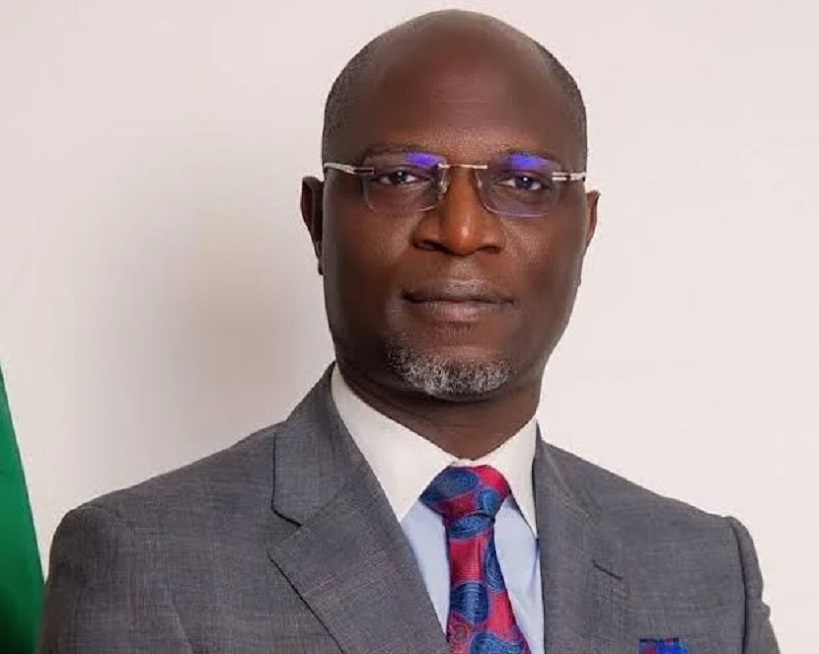
By Adedapo Adesanya
The Director-General (DG) of Nigeria’s Securities and Exchange Commission (SEC), Mr Emomotimi Agama, says Africa and the Middle East must tap into opportunities in digital assets, which will be worth $10 trillion by 2030.
The SEC DG said this in his acceptance speech after he was elected the Vice Chairman of the Africa/Middle East Regional Committee (AMERC) of the International Organisation of Securities Commissions (IOSCO).
According to a statement, with young and tech-savvy populations, Africa and the Middle East must lead and not follow in digital assets.
He said his mandate as the Vice Chairman was to transform the capital markets into engines of inclusive growth, innovation, and shared prosperity for Africa and the Middle East.
”We must aggressively expand listings by working with African Financial Markets Initiative (AFMI) and SSA exchanges to harmonise standards, reduce listing costs, and create cross-border linkages.
”To boost liquidity, we will pioneer regional market-making schemes and advocate for pension fund reforms to channel domestic savings into productive investments.
“Critically, we will partner with AFMI and development institutions to de-risk infrastructure investments and attract global capital.
”However, infrastructure alone is not enough. With 70 per cent of Africa’s population under 30, we must empower youth through: Retail investor programmes to democratise market participation, Fintech sandboxes to nurture youth-led innovation and Listings of high-growth startups to create wealth and jobs,” he said.
Mr Agama said there was still a lot of work to be done despite the progress made by IOSCO, calling on members to continue to render the mutual support and cooperation of past years for the benefit of investors, markets and indeed the world economy.
He noted that the committee would continue to deepen discussions and debates to launch a “Listings Growth Initiative” for Small and Medium Enterprises.
Mr Agama will serve on the Board of IOSCO, the highest decision making organ of the global securities regulatory organisation, till 2026.
IOSCO was established in 1983 as the standard setter for the securities industry worldwide and currently has over one hundred ordinary members. It is recognised as the leading international policy forum for securities regulators. The organisation’s membership regulates more than 95 per cent of the world’s securities markets in over 100 jurisdictions.
World
Tether Exposure to US Treasuries Climbs to $127bn
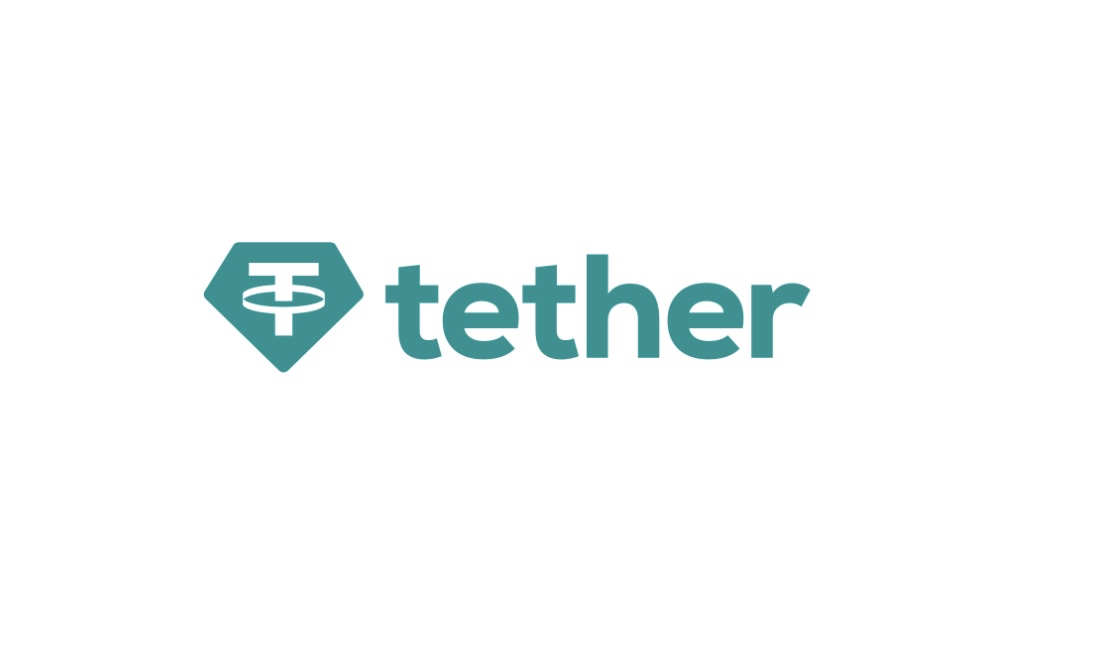
By Aduragbemi Omiyale
A leading figure in the global cryptocurrency landscape, Tether, has revealed that its exposure to the United States treasuries stood at $127 billion in the second quarter of 2025 compared with about $119 held in the first quarter of this year, becoming one of the largest US debt holders.
This milestone comes at a time when US policymakers, through the GENIUS Act, have taken decisive steps to solidify the Dollar’s global leadership in digital form.
Tether’s reserves composition exemplifies how private innovation can align with public monetary goals, serving as a conduit for secure, on-chain access to US Dollar liquidity at scale.
Business Post gathered that the treasuries held by Tether comprise $105.5 billion in direct holdings and $21.3 billion owned indirectly.
In its financial figures, Tether also revealed that it issued over $13.4 billion USDT between April and June 2025, bringing the circulating supply to more than $157 billion, reflecting the growing adoption of the stablecoin and deepening the trust in Tether as the most stable, transparent, and resilient digital dollar instrument in the world.
The firm said it closed June 2025 with a net profit of about $4.9 billion, bringing the total for the first six months of the year to $5.7 billion.
Building on the strength of its equity buffer and continued profitability, Tether has reinvested a substantial portion of its recent earnings into long-term strategic initiatives.
“Q2 2025 affirms what markets have been telling us all year: trust in Tether is accelerating. With over $127 billion in US Treasury exposure, robust bitcoin and gold reserves, and over $20 billion in new USD₮ issued, we’re not just keeping pace with global demand, we’re shaping it,” the chief executive of Tether, Mr Paolo Ardoino, stated.
“As regulators formalize frameworks for digital dollars, Tether stands as a live, proven model of what stablecoin innovation can achieve: transparency, resilience, and massive global reach.
“USDT is helping billions access the stability of the US Dollar, and that mission has never been more urgent or more relevant,” Mr Ardoino added
-

 Feature/OPED6 years ago
Feature/OPED6 years agoDavos was Different this year
-
Travel/Tourism9 years ago
Lagos Seals Western Lodge Hotel In Ikorodu
-

 Showbiz3 years ago
Showbiz3 years agoEstranged Lover Releases Videos of Empress Njamah Bathing
-

 Banking7 years ago
Banking7 years agoSort Codes of GTBank Branches in Nigeria
-

 Economy2 years ago
Economy2 years agoSubsidy Removal: CNG at N130 Per Litre Cheaper Than Petrol—IPMAN
-

 Banking2 years ago
Banking2 years agoFirst Bank Announces Planned Downtime
-

 Sports2 years ago
Sports2 years agoHighest Paid Nigerian Footballer – How Much Do Nigerian Footballers Earn
-

 Technology5 years ago
Technology5 years agoHow To Link Your MTN, Airtel, Glo, 9mobile Lines to NIN



